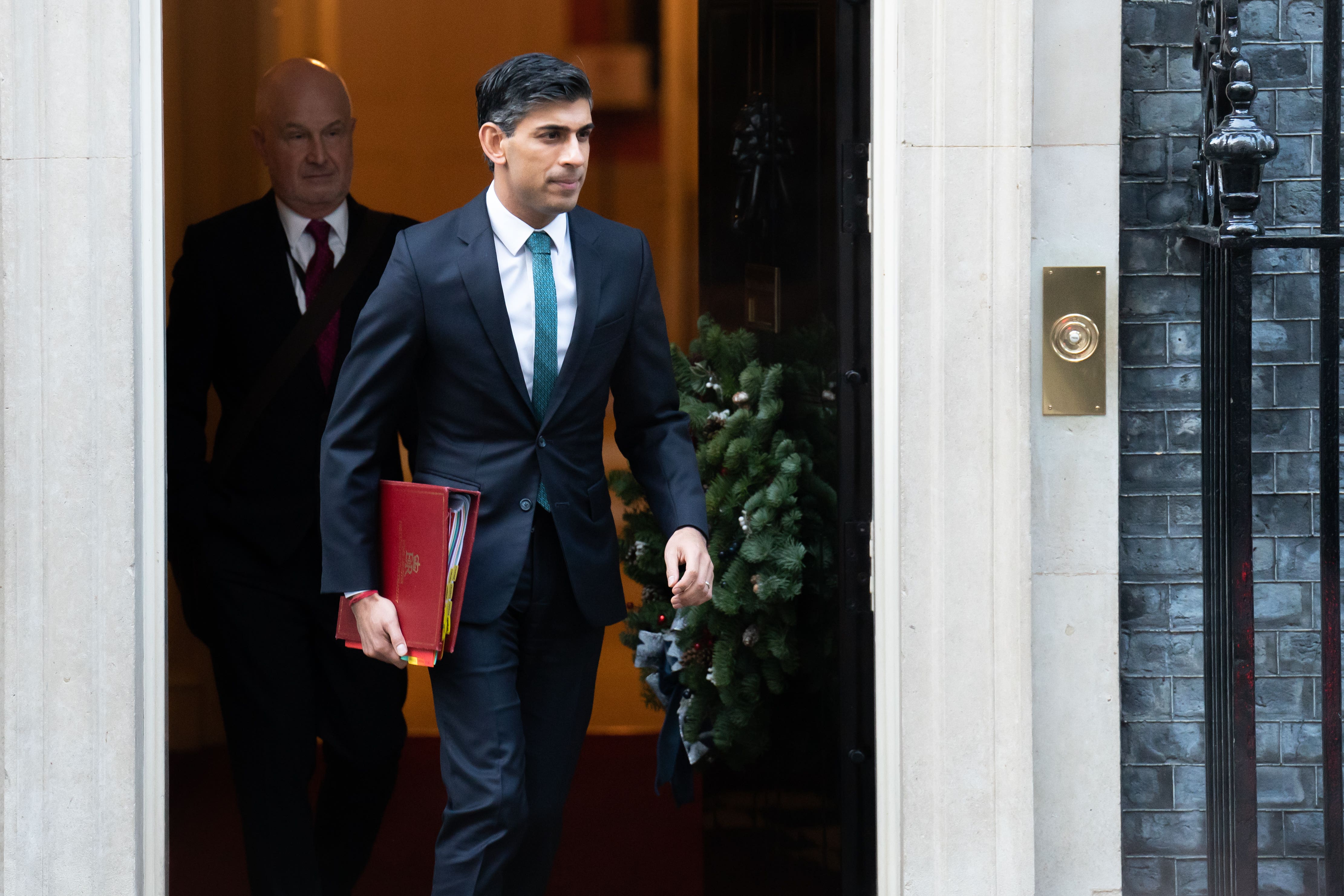PM’s ‘maths to 18’ plan must tackle ‘chronic’ teacher shortages, say experts
Rishi Sunak’s first speech of the year will include a new mission to combat high rates of innumeracy in England.

Your support helps us to tell the story
From reproductive rights to climate change to Big Tech, The Independent is on the ground when the story is developing. Whether it's investigating the financials of Elon Musk's pro-Trump PAC or producing our latest documentary, 'The A Word', which shines a light on the American women fighting for reproductive rights, we know how important it is to parse out the facts from the messaging.
At such a critical moment in US history, we need reporters on the ground. Your donation allows us to keep sending journalists to speak to both sides of the story.
The Independent is trusted by Americans across the entire political spectrum. And unlike many other quality news outlets, we choose not to lock Americans out of our reporting and analysis with paywalls. We believe quality journalism should be available to everyone, paid for by those who can afford it.
Your support makes all the difference.Rishi Sunak must tackle “chronic” shortages of maths teachers if his plans for all pupils in England to study some form of the subject until the age of 18 are to work, education experts have warned.
The Prime Minister will lay out his priorities for the year ahead in a speech on Wednesday afternoon, which will include a new mission to combat high rates of innumeracy in England.
Mr Sunak, who is expected to commit to starting the work in this Parliament and finishing it in the next, will say he sees “no reason” why “we cannot rival the best education systems in the world”.
Education experts welcomed the move but also reacted to the plans with caution, saying “already-chronic” maths teacher shortages must be tackled.
Jack Worth, education economist at National Foundation for Educational Research (NFER), said: “It is a perennial issue that we are not recruiting enough maths teachers.”
It comes as Department for Education figures show targets for recruiting maths teachers into Initial Teacher Training (ITT) have not been met for several years.
Figures show that just 65% of the maths teacher target was met for the school year 2019/20, followed by 84% for 2020/2021, 90% for 2021/2022 and 90% for 2022/2023.
Although the shortfall gap has been closing over the four years, the targets themselves have been reduced – from 3,343 in 2019/20 to 2,040 in 2022/2023.
Figures from NFER published in November also show that 45% of schools have some maths taught by non-specialist teachers.
Mr Worth said: “The number of recruits went up during the pandemic but they are lower this year so we are really struggling to recruit maths teachers at the moment.
“The target has come down particularly this year and, if this policy were to be implemented, then targets would need to be much higher.”
Mr Worth said the policy will face “a lot of implementation challenges”, adding that the UK is struggling to find “enough teachers full stop, let alone teachers with the relevant subject knowledge in order for it to be implemented in a high-quality way”.
“There aren’t enough teachers to deliver it so they need a real plan on where these teachers would come from,” he said.
Geoff Barton, general secretary of the Association of School and College Leaders, said the Prime Minister needs to show the plan is “based on solid research and is not a pet project”.
He added: “We would also want to hear how such a policy would avoid exacerbating the already-chronic national shortage of maths teachers.”
David Robinson, director for post-16 and skills at the Education Policy Institute, said they “welcome the efforts to increase the study of maths beyond GSCE” but added that there are some “major issues” that need to be addressed.
“Firstly, to successfully implement such a policy, the Government will need to address the existing shortfall of qualified maths teachers, and to increase funding levels for 16-18 years to match that of secondary age students,” he said.
“Secondly, any new maths provision must work not just for those studying A-levels, but also for the majority of students studying vocational and technical qualifications.
“Finally, many pupils already fail to master maths by age 16 and many of these have fallen further behind during the pandemic. The Government will need to help these pupils to close the gap before a major post 16 expansion can be a success.”
Catherine Sezen, education director of the Association of Colleges, said: “To achieve the Prime Minister’s ambition for all young people to continue studying maths post-16, the sums must add up, with appropriate qualifications for students working at different levels, adequate staffing levels, and sustainable funding for colleges and sixth forms.”
She added: “Poor 16-18 funding is a big obstacle to recruiting and retaining staff to teach maths for all.
“Maths teacher recruitment incentives are paid to schools but not colleges, and funding per student drops 20% at age 16 for no good reason – this requires urgent attention.”
The UK remains one of the only countries in the world that does not require children to study some form of maths up to the age of 18.
The Government does not apparently envisage making maths A-level compulsory for all 16-year-olds and further details will be set out in due course.